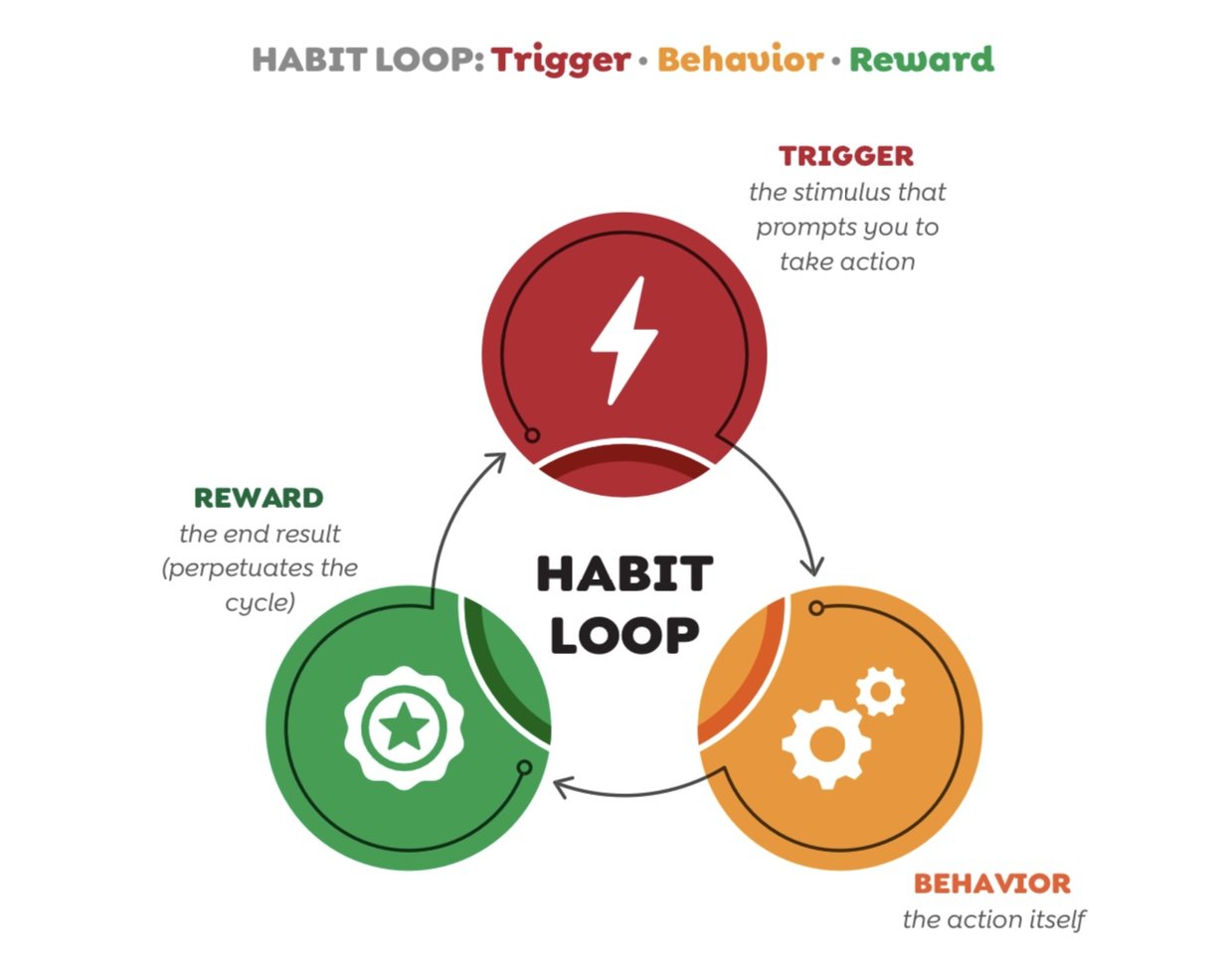Changing Habits
Our pastor at Hoboken Grace, Chris High, talked last weekend about Habit Forming and particularly about understanding this cycle as a tool for breaking bad habits and establishing better ones:
(Diagram credit: mindovermunch.com)
We often just consider the action or behavior, and try to eliminate an old habit through willpower or introduce a new habit through repetition. But it’s much more effective and likely to succeed to consider the other elements that prompt the habit to take place.
The trigger could be as simple as waking up. Or drinking a coffee. Or getting tired.
The reward doesn’t even have to be real. Many of us have the habit of checking our phones because of the promise of an endorphin hit that comes with a new message or social media interaction. We might exercise more for the short-term ‘reward’ of closing the rings on our watch as much as the long-term health benefits.
So if I want to introduce a new habit, it’s much more likely to work if I can establish both a trigger and a reward.
As a simple example, I want to regularly practice video editing and learn DaVinci Resolve. So my trigger could be that I do that as soon as I’ve dropped my daughter at school. And the reward might be that I create a ‘streak’ count of the number of consecutive days that I’ve practiced editing. I’ve realized that for me, gamification elements (such as a consecutive days streak on Duolingo or the health rings on the Apple Watch) are a pretty strong motivation.
Whatever goals we set, changing and establishing habits are likely to be the best (maybe only) way to achieve them.
